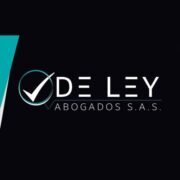Best White Collar Crime Lawyers in Cali
Share your needs with us, get contacted by law firms.
Free. Takes 2 min.
List of the best lawyers in Cali, Colombia
About White Collar Crime Law in Cali, Colombia
White collar crime refers to non-violent, financially motivated offenses typically committed by professionals, businesspersons, or public officials. In Cali, Colombia, these crimes include fraud, embezzlement, bribery, tax evasion, money laundering, and corruption, among others. Colombian authorities and courts treat white collar crimes with increasing seriousness due to their impact on the economy, public administration, and trust in institutions. Cali, being a major business center, often sees both individuals and organizations accused or investigated for these offenses.
Why You May Need a Lawyer
If you are involved in a situation concerning white collar crime, legal assistance is essential. Here are some common reasons you may require a lawyer:
- You have received notice of a criminal investigation or legal proceedings for financial wrongdoing.
- Your business is facing audits or allegations related to accounting irregularities or tax fraud.
- You are a victim of fraud or a financial scam and want to seek restitution.
- You have been subpoenaed or summoned as a witness in a white collar crime case.
- Your assets are at risk of being seized due to allegations of money laundering or corruption.
- You want to understand your obligations regarding anti-corruption, anti-money-laundering, or similar compliance laws.
- You need to prepare a defense strategy or negotiate with authorities for reduced charges or penalties.
- Your company needs training or compliance reviews to prevent involvement in white collar crimes.
Local Laws Overview
White collar crime in Cali is investigated and prosecuted under Colombia’s national criminal code but also involves local authorities such as the Fiscalía General de la Nación (Public Prosecutor’s Office) and local courts. Key legal aspects include:
- Offenses such as fraud, embezzlement, public corruption, money laundering, and bribery are thoroughly defined in the Colombian Penal Code (Código Penal).
- Money laundering (lavado de activos) attracts severe penalties, including lengthy prison terms and asset forfeiture.
- Authorities place special scrutiny on public officials, contractors, and private companies who deal with government funds.
- The criminal process allows for preventive measures such as freezing of bank accounts and other provisional actions during investigations.
- Several government agencies, including the Superintendencia de Sociedades and the Unidad de Información y Análisis Financiero (UIAF), oversee compliance and reporting duties for businesses.
- Defendants have procedural rights, including the presumption of innocence and the right to legal representation.
Frequently Asked Questions
What qualifies as white collar crime in Cali, Colombia?
White collar crime includes non-violent offenses such as fraud, bribery, tax evasion, embezzlement, money laundering, and corporate misconduct, committed for financial gain.
How are white collar crimes investigated?
Investigations are usually led by the Fiscalía General de la Nación, sometimes working with specialized financial units or agencies such as the UIAF. They gather evidence, interview witnesses, and may execute searches or asset seizures.
What happens if I am accused of a white collar crime?
You may be called to provide statements, your assets could be temporarily frozen, and you could face formal charges. It is crucial to seek legal advice immediately to protect your rights.
Can businesses as well as individuals be prosecuted?
Yes, both individuals and legal entities such as corporations can be investigated and prosecuted for white collar crimes in Colombia.
What are possible penalties for white collar crimes?
Penalties can range from fines and repayment of illicit gains to significant prison sentences. Penalties are set according to the Colombian Penal Code and depend on the severity of the offense.
How can victims of white collar crime seek redress?
Victims may file a criminal complaint with the Fiscalía or civil lawsuits to recover damages or lost assets.
What should I do if I receive a summons or subpoena?
Do not ignore the summons. Contact a lawyer immediately to guide your response and protect your legal interests before making any statements or providing documentation.
Are there alternatives to going to trial?
In some cases, negotiated settlements, plea bargains, or restorative justice measures may be available, depending on the facts and severity of the alleged crime.
How does the law protect whistleblowers?
Colombian law includes certain protections for whistleblowers who report financial crimes or public corruption, but these can vary by case and agency.
Are white collar crimes handled differently in Cali compared to other cities?
While the legal framework is national, local authorities in Cali may prioritize certain types of crimes based on economic activity and public interest, potentially impacting investigation and prosecution strategies.
Additional Resources
People seeking information or assistance regarding white collar crime in Cali, Colombia may find the following resources useful:
- Fiscalía General de la Nación - The main prosecutorial body handling criminal investigations and public complaints.
- Superintendencia de Sociedades - Regulates corporate compliance and investigates irregularities in business activities.
- Unidad de Información y Análisis Financiero (UIAF) - Monitors potential money laundering or suspicious financial transactions.
- Defensoría del Pueblo - Provides legal assistance and human rights protection, especially for victims.
- Local Bar Associations and Legal Aid Clinics - Can offer free or low-cost consultations with qualified defense attorneys.
Next Steps
If you believe you are involved in a white collar crime situation in Cali, Colombia, here are the steps you should consider:
- Contact an experienced criminal defense lawyer specializing in white collar crimes as soon as possible.
- Gather and organize any relevant documents, such as contracts, correspondence, bank statements, and official notices.
- Do not make public statements or provide information to authorities without first obtaining legal counsel.
- Follow your lawyer’s advice closely regarding interactions with prosecutors, investigators, or other parties.
- Consider additional protective actions, such as reviewing your company’s compliance protocols and securing sensitive information.
- If you are a victim, consult with law enforcement and legal professionals to file a formal complaint and seek restitution or protective measures.
Lawzana helps you find the best lawyers and law firms in Cali through a curated and pre-screened list of qualified legal professionals. Our platform offers rankings and detailed profiles of attorneys and law firms, allowing you to compare based on practice areas, including White Collar Crime, experience, and client feedback.
Each profile includes a description of the firm's areas of practice, client reviews, team members and partners, year of establishment, spoken languages, office locations, contact information, social media presence, and any published articles or resources. Most firms on our platform speak English and are experienced in both local and international legal matters.
Get a quote from top-rated law firms in Cali, Colombia — quickly, securely, and without unnecessary hassle.
Disclaimer:
The information provided on this page is for general informational purposes only and does not constitute legal advice. While we strive to ensure the accuracy and relevance of the content, legal information may change over time, and interpretations of the law can vary. You should always consult with a qualified legal professional for advice specific to your situation.
We disclaim all liability for actions taken or not taken based on the content of this page. If you believe any information is incorrect or outdated, please contact us, and we will review and update it where appropriate.










